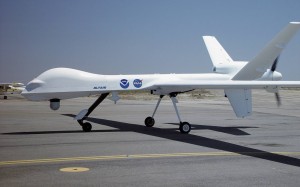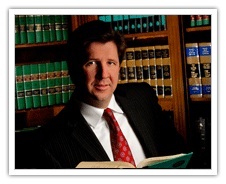J. Bradley Smith of Arnold & Smith, PLLC answers the question “What is the difference between a misdemeanor and a felony?”
The law is catching up with drones. If you plan to operate a drone in the state of North Carolina, you need to know about some new laws the North Carolina General Assembly passed this summer. The provisions regarding drones were included in “The Current Operations and Capital Improvements Appropriations Act of 2014,” also known as Senate Bill 744.
 Most of the new laws regarding drones go into effect on October 1 of this year. The laws add to North Carolina’s criminal code to establish, in effect, a class of “drone crimes.” Drones are called “unmanned aircraft” in the law, and are defined as “aircraft operated without the possibility of human intervention from within or on the aircraft.” The act excludes model aircraft from the act.
Most of the new laws regarding drones go into effect on October 1 of this year. The laws add to North Carolina’s criminal code to establish, in effect, a class of “drone crimes.” Drones are called “unmanned aircraft” in the law, and are defined as “aircraft operated without the possibility of human intervention from within or on the aircraft.” The act excludes model aircraft from the act.
It will become illegal on October 1 to use drones to conduct surveillance of a person, an occupied dwelling or private real property without consent. Private real property means land that is owned by private individuals or companies. “Occupied dwelling” refers to any houses or buildings that have people in them. The act prohibits photographing people using a drone without their consent if the purpose for taking the photograph is to publish it or publically disseminate it.
Law enforcement officers may use drones in ways the act prohibits. The act carves out exceptions for officers who are using drones to counter a “high risk of terrorist attack.” Officers can also conduct drone surveillance of areas within their plain view from places they have a legal right to be. They can use drones in connection with serving a search warrants. They can use drones when they have “reasonable suspicion of specified imminent circumstances,” and they can use them to photograph gatherings to which the general public is invited.
If officers obtain evidence while using drones in a manner the act prohibits, and the drone use does not fall into one of the exceptions outlined in the previous paragraph, that evidence must be excluded in a criminal trial against the person who was monitored using the drone. The language providing for the exclusion of illegally-obtained evidence also provides what defense attorneys commonly call an “end run around the law.” The act says that if an officer obtains evidence against a person by illegally using a drone, as long as the officer had “an objectively reasonable, good-faith belief that the actions were lawful,” then the evidence can be admitted. So it doesn’t matter what the law says; it matters what an officer who violates the law thinks the law says.
The new law authorizes a civil remedy for violations of the act, meaning people whose privacy is violated by a drone operator can sue the operator for damages. The act gives no details as the nature of the action, other than to provide that an action exists.
Using a drone to interfere with a manned aircraft is a felony, as is the act of arming a drone with a weapon. Hunting or fishing with a drone is a misdemeanor, as is distributing images captured by an unmanned aircraft system. Those who want to operate drones in the state must undergo training and obtain a license. Unless the Office of the State Chief Information Officer approves an exception, no licenses will be issued until December 31, 2015.
Until then, if you see a drone in the sky, it’s a law enforcement drone. If it’s not, whoever is flying it is committing a crime.
Arnold & Smith, PLLC is a Charlotte based criminal defense, traffic violation defense and civil litigation law firm servicing Charlotte and the surrounding area. If you or someone you know need legal assistance, please contact Arnold & Smith, PLLC today at (704) 370-2828 or find additional resources here.
About the Author
 Brad Smith is a Managing Member of Arnold & Smith, PLLC, where he focuses on the areas of criminal defense, DUI / DWI defense and traffic defense.
Brad Smith is a Managing Member of Arnold & Smith, PLLC, where he focuses on the areas of criminal defense, DUI / DWI defense and traffic defense.
Mr. Smith was born and raised in Charlotte. He began his legal career as an Assistant District Attorney before entering private practice in 2006.
In his free time, Mr. Smith enjoys traveling, boating, golf, hiking and spending time with his wife and three children.
Sources:
http://www.ncleg.net/Sessions/2013/Bills/Senate/PDF/S744v9.pdf
Image Credit:
http://upload.wikimedia.org/wikipedia/commons/4/4a/Predator_Drone_021.jpg
See Our Related Video from our YouTube channel:
https://www.youtube.com/user/ArnoldSmithPLLC/videos
See Our Related Blog Posts:
 Charlotte Criminal Lawyer Blog
Charlotte Criminal Lawyer Blog

